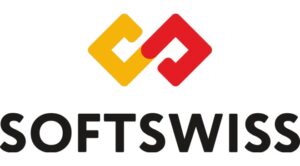Key Moments:
- Lawmakers in Austria have taken steps toward liberalizing the country’s online casino sector by the end of 2025
- The Austrian Association for Betting and Gambling (OVWG) projects €1.4bn in potential tax revenue by 2031 with a fully licensed market
- Up to 30 operators are positioned to enter immediately upon the introduction of new licensing regulations
Growing Momentum for Regulatory Change
Operators throughout Austria are closely monitoring proposed legislation that would dismantle the current online casino monopoly before 2026. According to the Austrian Association for Betting and Gambling (OVWG), optimism has risen that major political parties – ÖVP, SPÖ, and Neos – could achieve consensus by year-end. This agreement is widely expected to pave the way for a more open and competitive iGaming market.
The OVWG, whose membership features leading brands such as Merkur, Bet365, Entain, and LeoVegas, continues to advocate for a quicker shift toward liberalisation. The association maintains that Austria’s monopoly model is outdated relative to the evolving European regulatory environment.
Comparisons Across European Markets
Within Western Europe, only Austria and Poland continue to operate under an exclusive national gambling model. Finland has signaled plans for commercial licensing by 2027. According to the OVWG, delays in Austrian reform could further encourage players to use offshore gaming platforms, restraining tax income and suppressing local innovation.
Ongoing regulatory transformation in other European countries has added urgency for change and appears to reinforce the push for a more liberalized marketplace in Austria.
Economic Impact and Tax Revenue Projections
Recent reporting suggests significant fiscal benefits if Austria moves forward with a licensing regime. The OVWG estimates that a fully liberalized online gambling market could bring in €1.4bn in tax revenue by 2031 – vastly surpassing receipts under the existing framework. The association also contends that such reform would enhance player protections, deter black-market operations, and boost transparency within the industry.
Competition is highlighted as a driver for regulatory compliance and innovation, with expectations that a robust framework would attract established international casino brands while retaining effective domestic oversight.
| Market Model | Estimated Tax Revenue by 2031 | Number of Potential Licensed Operators |
|---|---|---|
| Monopoly (Current) | Lower than €1.4bn | 1 |
| Liberalized (Proposed) | €1.4bn | Up to 30 |
Market Readiness for New Licensing Structure
The OVWG has indicated that as many as 30 companies are ready to apply for licenses as soon as regulatory procedures are clarified. When examining similar reforms in Germany and Denmark, a surge in participation and revenues has followed regulation of this kind. Even if a smaller number of licenses is granted, the OVWG points out this would constitute major progress.
Firms already present in Austria’s sports betting segment, such as Tipico and Bwin, may have the opportunity to leverage existing experience in the event of a market shift.
Regional Collaboration and Enforcement Initiatives
Austria has demonstrated its commitment to updated best practices by taking part in the DACHL regulators’ conference hosted by Germany’s Gemeinsame Glücksspielbehörde der Länder (GGL) in Halle. Representatives from Germany, Switzerland, and Liechtenstein attended, with conversation centering on enforcing bans against illegal gaming, IP blocking, and sharing intelligence about unlicensed activities.
This participation marks Austria’s growing alignment with European enforcement and technology standards as it prepares for possible regulatory transformation.
2025: The Critical Year Ahead
The next several months will likely decide if Austria follows Finland’s anticipated liberalization or maintains its longstanding monopoly. The OVWG is presenting reform as an opportunity to increase transparency, bolster fiscal returns, and improve consumer protections.
Progress before the end of the year may determine whether Austria can align with its neighbors and modernize its gambling laws to both contain offshore activity and create a more open, accountable market.
- Author


